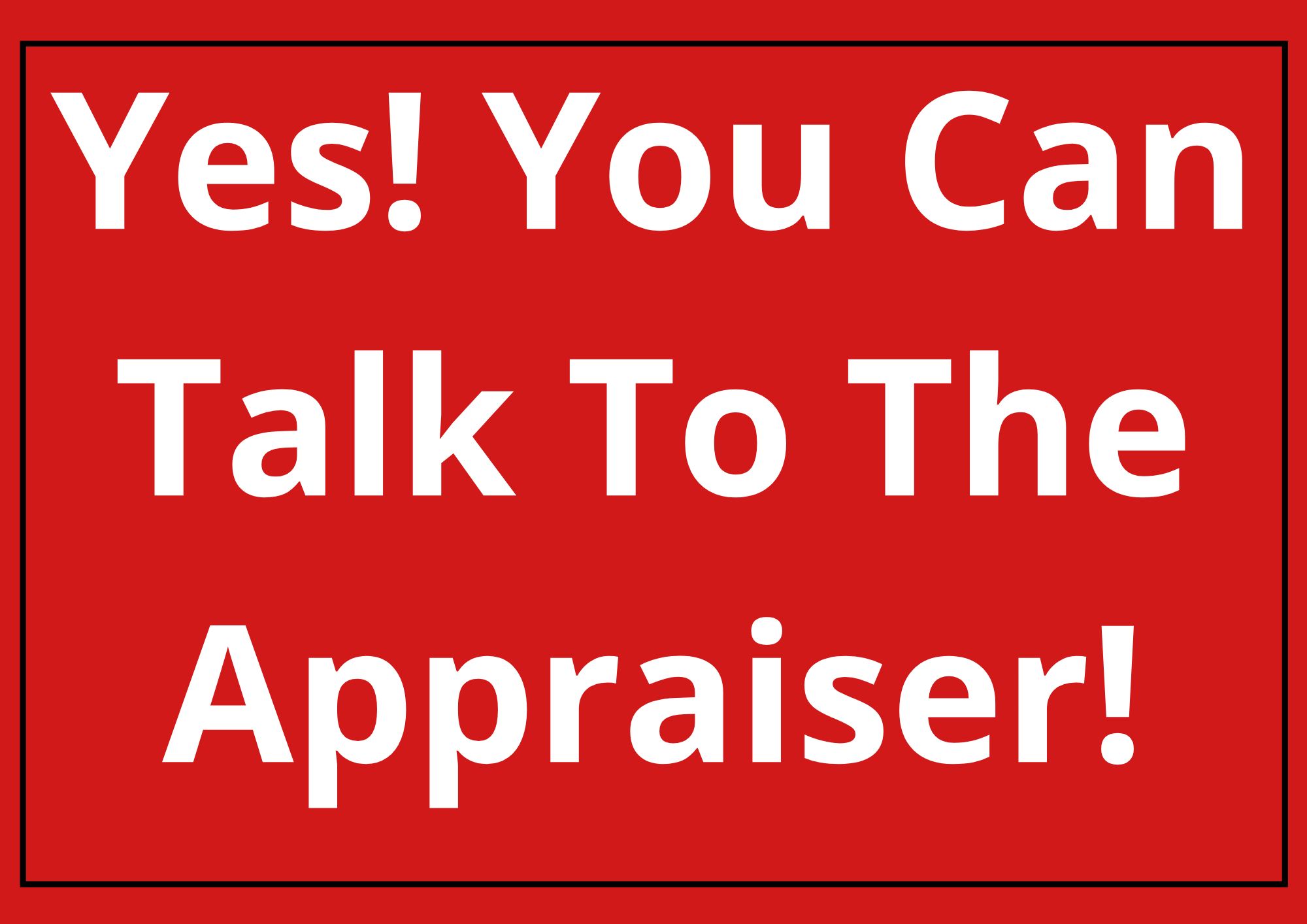Cheat Sheet: VA Appraisal Timelines By State
By Samantha Reeves
Published on April 24, 2017
A required step along the path to VA loan approval, the VA appraisal takes place shortly after contract acceptance. The appraisal helps lenders calculate a home’s reasonable market value and ensures the property measures up to the VA’s Minimum Property Requirements (MPRs).
It’s a tall order for a VA appraiser. Compiling these detailed reports takes careful analysis, supporting documentation, and most importantly, time.
But just how long should a prospective buyer expect to wait for a VA appraisal?
Delays Can (and Do) Happen
Timeliness guidelines are certainly helpful for buyers, sellers and agents on a narrow closing time frame. But don’t mistake these “guidelines” for “deadlines.” Delays can happen, and those delays could push a deal past its ideal closing date. Any of the following situations could extend VA appraisal completion times:
- Local appraiser shortages
- Higher than usual VA appraisal demand
- Difficulty accessing the property due to weather or other conditions
- Lack of suitable comparable sales
- Difficulty contacting real estate agents involved in the transaction
Appraisers must provide the lender with an explanation for any delays. To stay on top of any holdups, buyers are best-advised to stay in constant (daily) contact with their lenders at this stage of the game.
What Can I Do to Speed the Process Along?
Anxiously awaiting the results of the VA appraisal, it’s common for buyers to wonder, “Is there something I can do to speed the process along?”
The answer to this question: Choose the right lender, and stay in constant contact.
Getting an appraisal report isn’t as simple as calling an appraiser. Take a look at the entire process:
- The lender orders the appraisal. (Potential delay: Perhaps the lender needs to finalize credit details before ordering the appraisal.)
- The appraisal request gets sent to the next available appraiser. (Potential delay: Perhaps there is a huge backlog of appraisal requests in your area.)
- The appraiser must request access to the property via the real estate agent. (Potential delay: Perhaps the listing agent fails to return the appraiser’s call for two days.)
- The appraiser could request additional inspections (roof / electrical / plumbing).
- The VA appraisal report goes to the Staff Appraisal Reviewer (SAR) for approval. (Potential delays: The property may not meet Minimum Property Requirements or the appraisal report may be incomplete.)
The key point is this: There are several players involved in the VA appraisal process, and mistakes made by any of these players could result in delays.
Buyers can’t “choose” their VA appraiser or their listing agent. But they can certainly choose the right VA lender.
An experienced VA lender like Veterans United Home Loans orders VA appraisals promptly, knows how to handle appraisal delays, and has adequate SAR staffing to provide optimal VA appraisal turnaround times.
So don’t underestimate the importance of choosing the right lender. When dealing with a potentially complex process like the VA appraisal, an experienced VA lender is one of the best advocates to have on your side. Choose wisely, and you’ll have your homeownership dreams (and keys) in hand as quickly as possible.
by Ryanbays - husband, a father to six girls, and an SRA & AI-RRS designated real estate appraiser at Riverfront Appraisals, LLC in Owensboro, Kentucky.
Previously, I wrote a two-part series about how Location is King in real estate. Well, just as location is of utmost importance when it comes to real estate valuation, communication is most important in the day-to-day dealings between homeowners, Realtors and Appraisers. In this very important blog post, we dive into how all parties in a typical real estate transaction can speak to each other to help achieve the common goal of helping homeowners buy and sell real estate.
The reason this post is so important is that there may be no other point around which there is so much confusion. Real Estate Agents are all over the board on this issue. Some know what they can or cannot say to an appraiser, while some think if they speak to the appraiser, they’ll be sanctioned and brought before the NAR Ethics Committee.
In a 2015 Realtor Magazine article written by David Bunton of The Appraisal Foundation, Mr. Bunton writes that “we…encourage brokers to actively communicate with appraisers in a professional and productive manner. Real estate professionals should feel empowered to supply relevant materials, including the terms of the sale, applicable comparable sales, and any evidence of notable renovations done to a home that might affect its value.”
So let’s look a little deeper into three main areas where homeowners and Realtors are encouraged to talk with appraisers.
Repairs and Updates
Getting information to the appraiser about recent updates or changes to your home is extremely important. In the last 15 years, what repairs have been made to the home? What about updates, remodeling, or additions? The appraiser will need to know all of this information, so if you (Realtor or seller) can provide a list to the appraiser, that will save a bunch of time. If you can get a list together and leave it on the counter, remember to include the following:
- List of repairs, updates, remodeling, or additions.
- Date each was completed (ballpark estimates are ok).
- Cost of each (again, ballpark is just fine).
Why is this important? Here’s one example: You bought your home last year and it was a bit of a fixer-upper. So you put a ton of time and money into it and now you’re selling it for $75,000 more. The underwriter is going to want to know the reason it’s selling for so much more only a year later. This information can also help justify the appraiser’s opinion of value.
Recent Relevant Sales
It is 110% ok to share with the appraiser how you priced your home. Some appraisers may shy away from looking at the information you provide, but it never hurts to try. What sales did you use? Equally important is what sales did you not use? If the home next door was trashed on the inside, and that’s why it sold so low, then let the appraiser know. Maybe you used a home that sold a year ago, but it was practically identical to your listing. Make sure the appraiser knows this!
Activity
What’s been going on in the subject’s neighborhood that you know of? Perhaps the appraiser doesn’t know that this is one of the most sought-after subdivisions in the city. Let the appraiser know that homes are rarely listed in this neighborhood and that demand for this home has been very strong.
What about the subject property? How long was it on the market? Were there multiple offers? Why is the home selling above list price? Answers to these questions can be a huge help to an appraiser in forming their opinion of value.
To help you communicate to the appraiser in the best way possible, we created a simple document you can fill out and email to / hand to / leave for the appraiser. It includes space for sales used in pricing the home, as well as areas to write about updates and improvements made to the home. To download your copy, simply click here.
Make your case with the appraiser. Repairs and updates, activity in the neighborhood and buyer activity all assist the appraiser when it comes time to type in that final number in the report. Remember: communication is key. And as I tell everyone, the more information – the better. Even if you think it doesn’t matter, let the appraiser know!
Repairs and updates, activity in the neighborhood and buyer activity all assist the appraiser when it comes time to type in that final number in the report. Remember: communication is key. And as I tell everyone, the more…
These are all conversations that typically take place before the appraisal has been submitted. However, there are some times when it might be necessary to challenge the appraiser’s opinion of value. If you find yourself in that situation, go back and read a previous post here. And make sure you take advantage of the Reconsideration of Value Request document we created to challenge the appraisal if needed.
Although giving the appraiser as much information as possible is very important, there’s still one thing you just can’t talk about.
Again, Bunton states, “… real estate professionals are legally barred from any communication with an appraiser that is intended to unduly influence the outcome of the appraisal. While it might be obvious that coercing an appraiser is off-limits, it is always a good idea for agents and brokers to make sure an appraiser or regulator couldn’t interpret their communications as an attempt to improperly influence an appraisal. An example of improper communication would be asking an appraiser to provide a valuation that matches the asking price of a particular home. Another example could be telling an appraiser he or she will not receive future assignments if the appraisal does not facilitate a transaction.”
A few years back, my appraiser friend Ryan Lundquist wrote a blog post about the many various ways a Realtor can pressure an appraiser. You can read his article here.
In his post, he lists 10 things as a Realtor (or even homeowner), you should avoid saying to the appraiser:
- I’ll be happy as long as it appraises for at least the sales price.
- Do your best to get the value as high as possible.
- The market has been “on fire”. You shouldn’t have any trouble with the appraisal.
- Is it going to come in at “value”?
- I never say this, but if you can just work some magic this time, you’ll be my hero.
- If this doesn’t “appraise”, the seller is going to go into foreclosure.
- I would be shocked if it didn’t “appraise”.
- I really hope this works out. No pressure or anything though.
- The son has cancer. It’s been really hard on the family. The last piece to wrapping up this transaction is the appraisal.
- I don’t want to ask you to do anything unethical, but just do your best.
So that’s it! Just keep your communication to the appraiser about the facts of the home and neighborhood, how you priced the house, and any other relevant information you think the appraiser should know. And remember, don’t discuss value. Don’t pressure the appraiser to ‘hit the value’ and you’ll be fine.
Helping homeowners navigate the appraisal process

